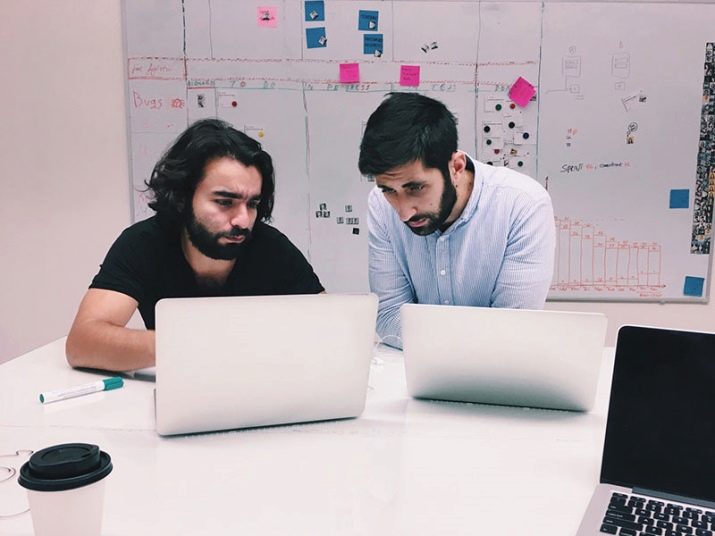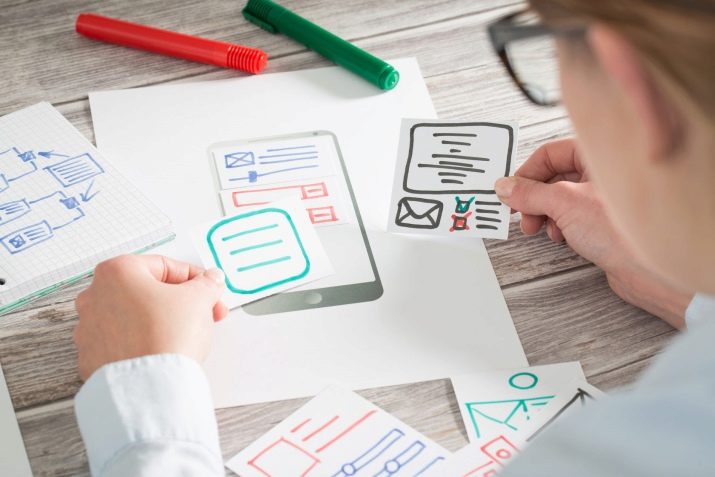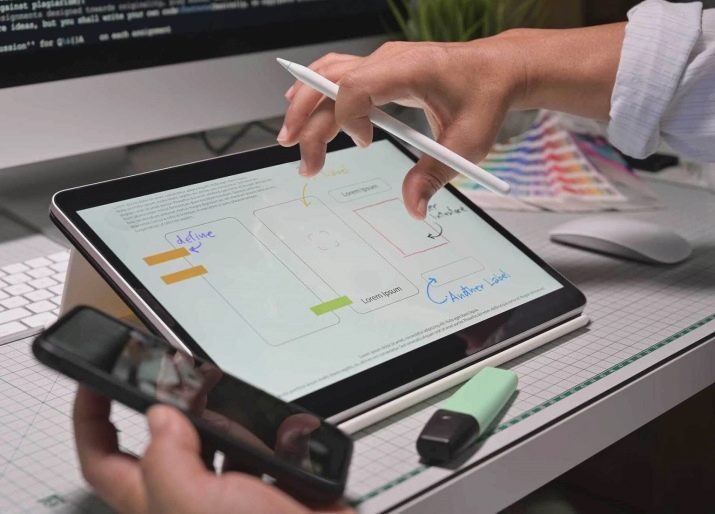Interface designer: description, advantages and disadvantages, education

If you are interested in modern technologies, as well as have a creative mindset and are not afraid to show your creativity, then you should pay attention to the new but rapidly developing profession of interface designer. To date, message boards, as well as specialized sites offering work, are full of open vacancies for the position of interface designer. However, before embarking on the development of an interesting and popular profession, it is necessary to take into account all its advantages and disadvantages, study the characteristic features in more detail, and also find out the answers to all your questions on the topic. We will talk about this today in our article.
Peculiarities
Interface designer is a popular and demanded profession.
A specialist in this industry in the course of his work is engaged in the creation of user-friendly interfaces for a variety of sites.
At the same time, during the development of interfaces, special attention should be paid to reviews and actions of visitors - it is on this principle that all the work of a designer is based.

Most of the work designer aims to create simple and intuitive navigation for this or that online resource.
The profession is pretty complex and varied, in order to effectively perform his functions, an interface designer must be interested in a wide variety of areas and spheres of human life (for example, psychology, drawing, computer and information technology, etc.).
It should be borne in mind that this type of activity and the profession itself is considered quite young on the labor market.
In this regard, quite it is difficult to provide a universal and standardized job description, which will include all rights and obligations, responsibilities, as well as the necessary key professional skills and abilities.
That's why today every employer is trying to independently develop instructions, which the interface designer must follow when completing work assignments.
Advantages and disadvantages
Building a career as an interface designer - it is a lengthy and rather difficult process. That is why it is very important to study in advance all the pros and cons of the profession, as well as soberly and objectively assess your strengths and understand whether you are ready to work in this position.

Let's take a closer look at the advantages and disadvantages of the profession of an interface designer.
Pros:
- large material remuneration for work (at the same time, wages significantly increase with the acquisition of work experience or additional skills, employers are always ready to pay higher for highly qualified specialists);
- freelance and remote work opportunities (This work format is becoming more and more popular in the modern world, which is why many employers offer applicants for the position of interface designer such a comfortable work style - you do not need to leave your own home to earn money);
- demand (the profession is considered quite new, so a rather small number of people have the necessary skills at a good level - in this regard, there are many vacancies open, and you can always find a job for yourself);
- perspectives (the prospects relate not only to career growth, but also to the fact that this profession will remain in demand for at least another 5-7 years);
- affordable training (today, to obtain the specialty of interface designer, you can get higher education on a budgetary basis or complete online courses).
However, it should be borne in mind that along with a large number of advantages, the profession is also characterized by a number of disadvantages.

Among them:
- low prominence of the profession (in this regard, a large number of employers impose a fairly large number of responsibilities on interface designers, which are not within the competence of these specialists);
- the need to adapt to customer requirements (very often there are customers who themselves are not sure of their own desires or who constantly change their minds, in this regard, it may be difficult to fulfill their work duties);
- difficulties with official employment (very often interface designers work as freelancers and do not get a job under labor contracts, respectively, they do not receive the work experience necessary for pension provision);
- software costs (due to the fact that interface designer is a profession directly related to the use of computer technology, specialists often have to spend personal funds on updating programs, installing various add-ons, etc.).
Thus, as we were able to verify, The profession of an interface designer has both advantages and disadvantages. Assess your strengths and capabilities, so that later you do not regret the time and effort spent.

Knowledge and skills
To the interface designer successfully completed his tasks with regard to the custom and graphic design of sites, he must have a whole range of knowledge, skills and abilities.
Let's consider some of them:
- analyze audience activity;
- be able to write custom scripts;
- have artistic skills and abilities;
- analyze the market;
- know the rules and principles of creating web pages and sites;
- make up;
- be able to work with usability;
- knowledge of various graphic editors;
- knowledge of programming languages, etc.
It should be borne in mind that depending on the specific project you are working on, as well as on the personal desires and preferences of the employer, the set of key skills and abilities can vary significantly.
Wherein it is important to clarify the content of the job description even in the process of employment (for example, during a personal interview), to objectively assess your capabilities occupy the position offered by the employer.

Besides, you should take into account the fact that, in addition to professional, the employer can put forward personal requirements to the jobseekers. Only in this case can he be sure that hires a responsible employee, which will execute all tasks on time, and will also fit perfectly into the team.
Among personal qualities, employers value:
- a penchant for analytics;
- stress tolerance;
- tendency to routine and monotonous work;
- passion for technology;
- developed artistic taste;
- constant striving for self-improvement, etc.
Thus, in order to take the position of an interface designer, it is important to have the necessary set of personal and professional qualities.
Only such employees are valued by employers and remain in demand in the labor market.
Education
The process of training as an interface designer can go in several ways. For example, to become a qualified employee, you can study in specialized institutions of higher education.

Popular areas are: "Web Design", "Computer Graphics and Design", and "Information Design".
It should be borne in mind that employers give preference to those applicants who graduated from prestigious metropolitan universities and have high marks in their diplomas.
In this regard, before proceeding, carefully analyze all possible options, and also find out what subjects you need to take in a particular university. It is also important to go through practice and internships in the learning process - this will help you develop your abilities.









